第309章 THE LIFE AND WRITINGS OF ADDISON(31)
But the fatal complaint soon returned, and gradually prevailed against all the resources of medicine.It is melancholy to think that the last months of such a life should have been overclouded both by domestic and by political vexations.A tradition which began early, which has been generally received, and to which we have nothing to oppose, has represented his wife as an arrogant and imperious woman.It is said that, till his health failed him, he was glad to escape from the Countess Dowager and her magnificent dining-room, blazing with the gilded devices of the House of Rich, to some tavern where he could enjoy a laugh, a talk about Virgil and Boileau, and a bottle of claret, with the friends of his happier days.All those friends, however, were not left to him.Sir Richard Steele had been gradually estranged by various causes.He considered himself as one who, in evil times, had braved martyrdom for his political principles, and demanded, when the Whig party was triumphant, a large compensation for what he had suffered when it was militant.The Whig leaders took a very different view of his claims.They thought that he had, by his own petulance and folly, brought them as well as himself into trouble, and though they did not absolutely neglect him, doled out favours to him with a sparing hand.It was natural that he should be angry with them, and especially angry with Addison.But what above all seems to have disturbed Sir Richard, was the elevation of Tickell, who, at thirty, was made by Addison Under-Secretary of State; while the editor of the Tatler and Spectator, and the author of the Crisis, and member for Stockbridge who had been persecuted for firm adherence to the House of Hanover, was, at near fifty, forced, after many solicitations and complaints, to content himself with a share in the patent of Drury Lane Theatre.Steele himself says, in his celebrated letter to Congreve, that Addison, by his preference of Tickell, "incurred the warmest resentment of other gentlemen"; and everything seems to indicate that, of those resentful gentlemen, Steele was himself one.
While poor Sir Richard was brooding over what he considered as Addison's unkindness, a new cause of quarrel arose.The Whig party, already divided against itself, was rent by a new schism.
The celebrated Bill for limiting the number of Peers had been brought in.The proud Duke of Somerset, first in rank of all the nobles whose religion permitted them to sit in Parliament, was the ostensible author of the measure.But it was supported, and in truth devised, by the Prime Minister.
We are satisfied that the bill was most pernicious; and we fear that the motives which induced Sunderland to frame it were not honourable to him.But we cannot deny that it was supported by many of the best and wisest men of that age.Nor was this strange.The royal prerogative had, within the memory of the generation then in the vigour of life, been so grossly abused, that it was still regarded with a jealousy which, when the peculiar situation of the House of Brunswick is considered, may perhaps be called immoderate.The particular prerogative of creating peers had, in the opinion of the Whigs, been grossly abused by Queen Anne's last Ministry; and even the Tories admitted that her Majesty, in swamping, as it has since been called, the Upper House, had done what only an extreme case could justify.The theory of the English constitution, according to many high authorities, was that three independent powers, the sovereign, the nobility, and the commons, ought constantly to act as checks on each other.If this theory were sound, it seemed to follow that to put one of these powers under the absolute control of the other two, was absurd.But if the number of peers were unlimited, it could not well be denied that the Upper House was under the absolute control of the Crown and the Commons, and was indebted only to their moderation for any power which it might be suffered to retain.
Steele took part with the Opposition, Addison with the Ministers.
Steele, in a paper called the Plebeian, vehemently attacked the bill.Sunderland called for help on Addison, and Addison obeyed the call.In a paper called the Old Whig, he answered, and indeed refuted, Steele's arguments.It seems to us that the premises of both the controversialists were unsound, that on those premises Addison reasoned well and Steele ill, and that consequently Addison brought out a false conclusion while Steele blundered upon the truth.In style, in wit, and in politeness, Addison maintained his superiority; though the Old Whig is by no means one of his happiest performances.